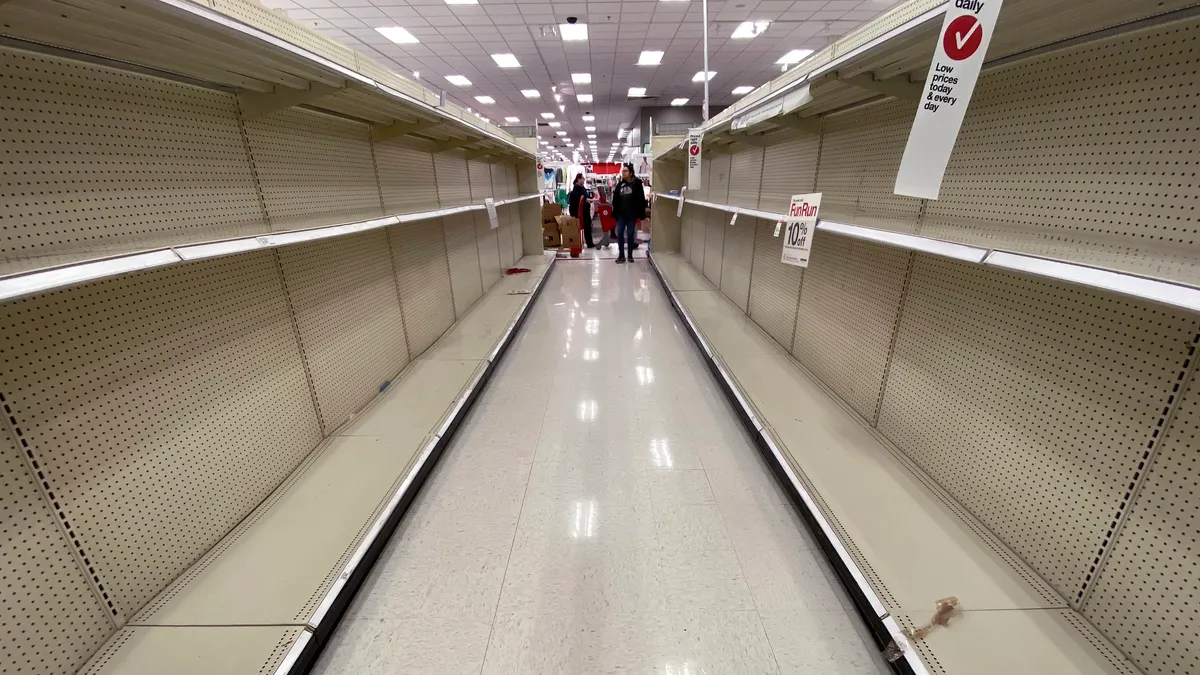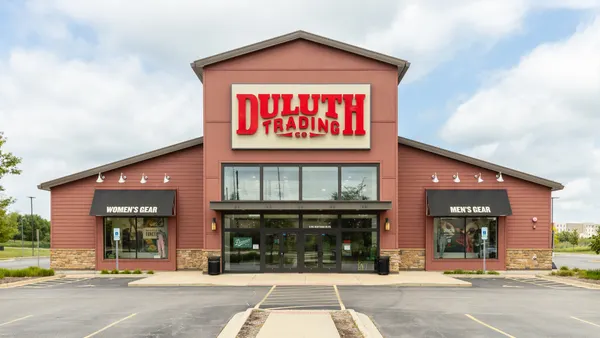This is a contributed op-ed written by Tom Madrecki, vice president of supply chain and logistics at Consumer Brands Association. Opinions are the authors' own.
This month, the Biden administration released a suite of recommendations to strengthen U.S. supply chain resilience and competitiveness. President Joe Biden's attention to the issue of assessing and addressing vulnerabilities in America's supply chain is welcome and necessary. But it is also incomplete.
By and large, the recommendations reflect Consumer Brands' call for supply chain visibility across the government. The administration should be lauded for seeking input from the private sector and adopting an evidence-based approach to proposals like establishing a disruption task force, leveraging data to monitor supply chain performance and convening a global forum on supply chain resilience. If we were to take a red pen to the report, we'd suggest one fundamental edit. There are several references to the food supply chain — a critical piece, no doubt — but none to other essential products.
What is 'essential'
Broadening from the food supply chain to the essential products supply chain incorporates items like disinfecting wipes, dish soap, deodorant and toilet paper. The pandemic experience has clarified that personal care and cleaning products are just as important as a stocked pantry to everyday life.
To define "essential," we need look no further than the family supply chain. Think of the last time you went to the store for your household. What was in your cart? Food, surely, but there's a good chance you tossed in a few cleaning products and maybe some shampoo or toothpaste. It's the product categories we source for our own homes that should inform the policy.
In fact, at the outset of the pandemic, as the Department of Homeland Security was determining essential industries, Consumer Brands made the same argument to ensure the entire consumer packaged goods industry — food, beverage, household and personal care — was included in the agency's definition. That inclusion was critical to getting access to COVID-19 testing and protective gear as well as vaccine prioritization that allowed the industry to keep making products American consumers relied on to stay home and stay safe.
More similarities than differences
Broadening the language doesn't mean a wholesale change in policy. These CPG sectors have more similarities than differences, as evidenced by Consumer Brands' agenda that serves the totality of the industry. One of the clearest ways the industry is united is in supply chain processes and challenges. Consider that Clorox makes the cleaning products you know but is also the parent company of Burt's Bees and Hidden Valley Ranch. Similarly, Reckitt makes Enfamil infant formula, but also makes Lysol and Finish detergent.
The CPG industry has been rigorously tested throughout the COVID-19 pandemic and offers unique insight into issues that impact the availability, affordability and accessibility of everyday products. After contending with unprecedented consumer demand that has strained supply chains to the breaking point, we know how important it is to think broadly about what American families depend on every day.
In the coming months, the administration will complete a broader, year-long review of several critical supply chains, under the direction of USDA, DOT and other relevant agencies. Expanding from "food" to "essential" is a small but important step in comprehensively strengthening America's supply chains.














